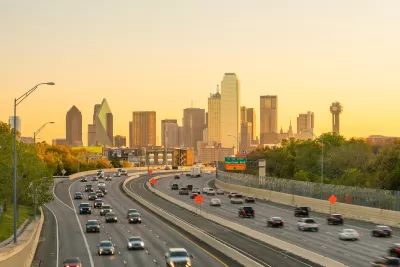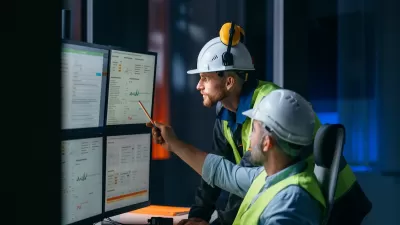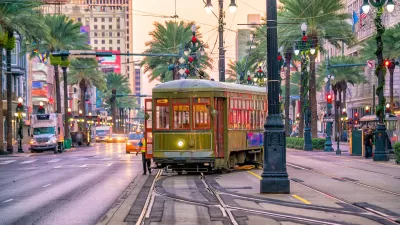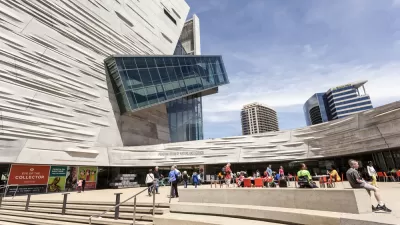Several Texas cities are using an AI-powered platform called NoTraffic to help manage traffic signals to increase safety and improve traffic flow.

Cities in the Dallas-Fort Worth metroplex are using AI to help manage traffic, reports the Dallas Morning News. Cities like Arlington, Dallas, Fort Worth, Garland, and McKinney are using a platform called NoTraffic, which uses AI to lengthen yellow lights and hold cross traffic if an approaching car isn’t slowing or to give a green light to police and emergency vehicles like ambulances or fire trucks.
“Variabilities in traffic patterns, particularly after the COVID-19 pandemic, are making it harder for planners to pin down peak hours and anticipate logjams ... With North Texas’ growing population bringing more traffic to city intersections, newer tech such as sensors can provide a more complete picture of traffic flows as they continue to change,” writes reporter Amber Gaudet.
Gaudet reports that Arlington will spend an estimated $1 million over the next two years for the technology, which will come from bond funds allocated for signal improvements.
In addition to the real-time signal changes, a local planner say the system provides greater access to data about “exactly what kind of traffic intersections gets,” which allows planners and public safety officials to better plan for and respond to changing conditions, and better plan for pedestrians as well. Tom Cooper, vice president of public sector sales for NoTraffic, told the Dallas Morning News, “Typically, transportation planning and technologies were set up to serve vehicles, yet we have this other population of pedestrians and bicyclists, underserved communities, that typically were not factored into that planning. Equity with transportation is also a major piece of what most agencies want to achieve, and these technologies can help them achieve those goals.”
FULL STORY: Dallas-Fort Worth cities turn to AI to cut down on traffic, accidents

Alabama: Trump Terminates Settlements for Black Communities Harmed By Raw Sewage
Trump deemed the landmark civil rights agreement “illegal DEI and environmental justice policy.”

Planetizen Federal Action Tracker
A weekly monitor of how Trump’s orders and actions are impacting planners and planning in America.

Why Should We Subsidize Public Transportation?
Many public transit agencies face financial stress due to rising costs, declining fare revenue, and declining subsidies. Transit advocates must provide a strong business case for increasing public transit funding.

Understanding Road Diets
An explainer from Momentum highlights the advantages of reducing vehicle lanes in favor of more bike, transit, and pedestrian infrastructure.

New California Law Regulates Warehouse Pollution
A new law tightens building and emissions regulations for large distribution warehouses to mitigate air pollution and traffic in surrounding communities.

Phoenix Announces Opening Date for Light Rail Extension
The South Central extension will connect South Phoenix to downtown and other major hubs starting on June 7.
Urban Design for Planners 1: Software Tools
This six-course series explores essential urban design concepts using open source software and equips planners with the tools they need to participate fully in the urban design process.
Planning for Universal Design
Learn the tools for implementing Universal Design in planning regulations.
Caltrans
Smith Gee Studio
Institute for Housing and Urban Development Studies (IHS)
City of Grandview
Harvard GSD Executive Education
Toledo-Lucas County Plan Commissions
Salt Lake City
NYU Wagner Graduate School of Public Service





























